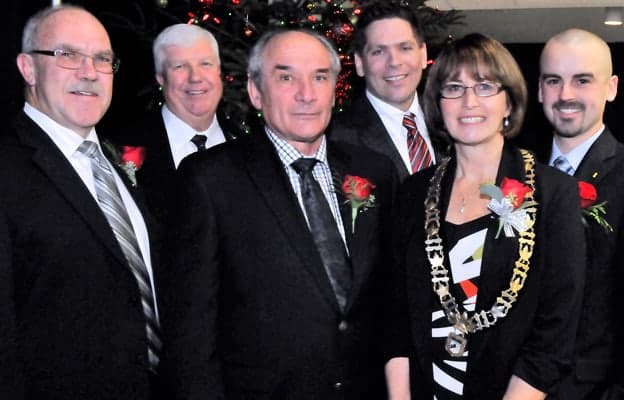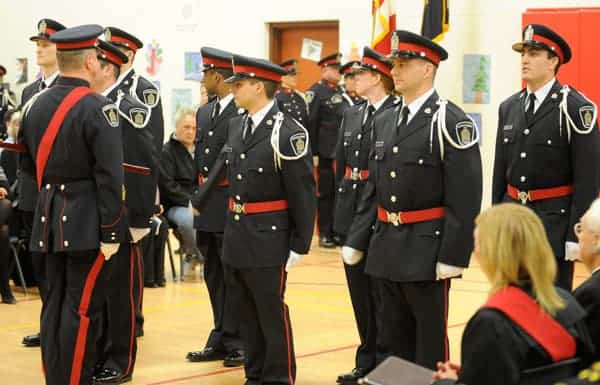In their continued bid to slash waste management costs, Waterloo Region officials launched a public survey earlier this month.
![Transfer stations in the rural townships are slated to close at the end of March, one of many changes proposed by the region as it reviews its waste master plan. [Scott Barber / The Observer]](https://www.observerxtra.com/content/images/wp-content/uploads/2014/12/feature_waste.jpg)
In it, the public is asked to share opinions on three potential policy measures aimed at decreasing “the amount of garbage ending up in our landfill.”
The measures are:
- Standardizing the collection of waste across all seven municipalities of Waterloo Region (i.e. bringing bag limits common in the townships to city residents);
- Bag limits and/or every other week garbage collection, with unlimited weekly blue box and green bin collection;
- User-pay options such as bag tags to allow residents the flexibility to have more waste collected at the curb, if needed.
The Erb Street landfill site will be full in 15 to 20 years, Waterloo Region project manager Cari Rastas Howard explained, and steps need to be taken to prolong its life.
“We have been working on a waste management master plan,” Rastas Howard explained. “We began the project in 2012 and the final waste management master plan went to (regional) council at the end of November last year. And through the master plan process we looked at getting direction on the future of all of our waste management programs, so what we might do with garbage when the landfill is full and the future of our waste collection and diversion program.”
As part of that process, the region surveyed the public in the fall of 2012 on possible strategies to reduce waste. This new survey reflects the results they received, Rastas Howard said.
Meanwhile, concerns remain over the future of the rural transfer stations, where hours of operation have already been drastically reduced. The region plans to close them by the end of next March.
Last month, Woolwich council passed a motion calling on the region to facilitate the sale of the Elmira transfer station to a private operator and to keep the facility open beyond its 2015 scheduled closure.
The region has not yet responded to the motion, in part due to the transition in membership following the October election.
But the region’s director of waste management, Jon Arsenault, made his position on the transfer stations quite clear to Woolwich council during a meeting back in June: they simply cost too much and provide too little.
Since 2009, when garbage collection was enhanced in the townships, the number of transactions at the four rural depots fell 37 per cent, with the tonnage of waste down 29 per cent (for Woolwich, those numbers are 37 and 31 per cent respectively). Usage is continuing to drop, he said.
The stations represent 10 per cent of costs, but just one per cent of the volume of waste and three per cent of revenues. In that light, the decision was made to save what amounts to $411,000 a year based on previous levels of service, or about $225,000 based on the every-other-Saturday schedule now in place.
Even still, some residents are displeased with the decision.
“I know the people up in Linwood are quite concerned that there could be some illegal dumping in the bush and that sort of thing (if the facility is closed),” Wellesley Mayor Joe Nowak said. “There is definitely concern there, I have no doubt about it, as I heard it when I was knocking on doors up there in that area (during the election campaign).”
So far, there has been just one official complaint to Woolwich Township staff, while Nowak wasn’t aware of any such complaints in Wellesley.
But as the Waterloo Region heads towards its next collections contract in 2017, they are intent on standardizing garbage collection service levels across the region while looking at ways to curb the amount of waste heading to the landfill.
“The rural transfer stations came up as a budget issue last year, and so the reason they were proposed for closing is because in order to keep them open, there is the cost not just to keep them open but all of the sites are getting old and we were due for some expensive upgrades in the next little bit if we were going to keep them open,” Rastas Howard said. “Those site are all historic, they go back to a time when the townships did not have the curbside pickup and the same level of service as some of the other areas in the region. And since then pretty much everyone has blue box collection and there is yard waste collection in the townships.”
There is no room to expand the Erb Street landfill, she added, so when it’s full, the region will have to look for another site.
That could be tricky, since the province “hasn’t opened a new landfill site in a long, long time,” she noted.
And hence the robust policy initiatives being put on the table, including closing the rural transfer stations, placing limits on bags and even the possibility of a thermal-waste treatment facility, similar to the plant recently build in the Durham Region.
“This survey is part of an ongoing process that we have been working towards with our master plan and the timing is right because if council makes a decision in terms of the [actions] they would to see this spring, that will give us time to get them into the next contract. It’s a long-term horizon for all of our planning.”









